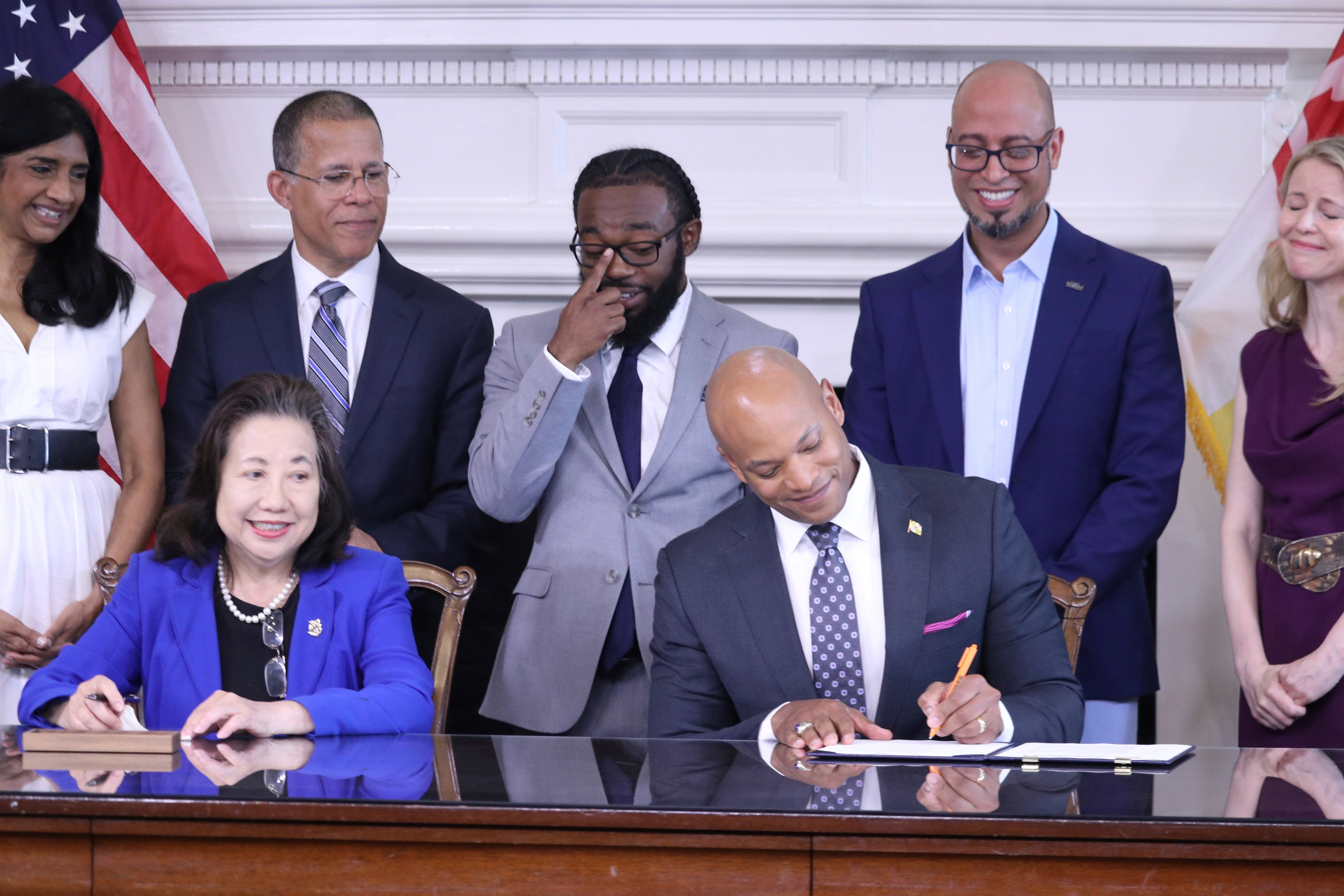Maryland man’s entire life was impacted by a tiny crumb of cannabis. He finally has a clearer future
175,000 pardons for marijuana convictions have been issued
Your support helps us to tell the story
From reproductive rights to climate change to Big Tech, The Independent is on the ground when the story is developing. Whether it's investigating the financials of Elon Musk's pro-Trump PAC or producing our latest documentary, 'The A Word', which shines a light on the American women fighting for reproductive rights, we know how important it is to parse out the facts from the messaging.
At such a critical moment in US history, we need reporters on the ground. Your donation allows us to keep sending journalists to speak to both sides of the story.
The Independent is trusted by Americans across the entire political spectrum. And unlike many other quality news outlets, we choose not to lock Americans out of our reporting and analysis with paywalls. We believe quality journalism should be available to everyone, paid for by those who can afford it.
Your support makes all the difference.For years, a few crumbs of cannabis played an outsized role in shaping Shiloh Jordan’s life.
With a stroke of a pen by Maryland Gov. Wes Moore, Jordan looks forward to that being in the past for him — as well as tens of thousands of other Marylanders who have been pardoned for misdemeanor marijuana convictions.
“I just feel like this is a big opportunity for people, you know, to not let struggles get in their way,” Jordan, 32, said in an interview with The Associated Press on Tuesday, a day after he watched the governor sign an executive order for the sweeping pardon of more than 175,000 convictions.
Jordan was in his early 20s when he was pulled over in Howard County, Maryland, for not wearing a seatbelt on his way home from work as a custodian at a nursing home. The officer said she smelled marijuana, and using a piece of tape, she found cannabis crumbs on the floor of the vehicle, Jordan said.
“She was just like, ‘Yep, you’re going to jail,’” Jordan recalled of the incident from about a dozen years ago. “I’m like what? Are you serious?”
“But that was the law back then, so she took me to jail, locked me up,” Jordan said.

He said he didn’t think much of the minor charge — until his second day at a new job when he was let go because a background check had uncovered his misdemeanor conviction. It was disheartening, and it made him think about the myriad challenges facing young people growing up in poverty, all the things that so often stand in the way of them staying on the straight and narrow, Jordan said.
“I felt defeated,” he said. “I was just trying to, you know, do the right thing.”
He ended up participating in a job readiness program and later going back to school and playing football in college. He now works as an outreach coordinator at the Center for Urban Families in Baltimore, a nonprofit focused on helping families pull themselves out of poverty.
The governor’s actions this week come after President Joe Biden’s administration announced earlier this year that it will take a historic step toward easing federal restrictions on cannabis, reclassifying the drug.
Recreational cannabis was legalized in Maryland in 2023 after voters approved a constitutional amendment in 2022 with 67% of the vote. Maryland decriminalized possession of personal use amounts of cannabis on Jan. 1, 2023. Now, 24 states and the District of Columbia have legalized recreational marijuana.
“This is about changing how both government and society view those who have been walled off from opportunity because of broken and uneven policies,” Moore, a Democrat, said during Monday’s announcement.

The governor’s pardon absolves an individual from guilt of a criminal offense. But it is not an expungement that destroys the record of the offense. The Maryland Judiciary will instead make a note that the offense has been pardoned, leaving it to remain on the record. People who have been pardoned can seek expungement in court.
Jordan said he’s unfamiliar with the expungement process but plans to look into it.
On Monday, hours after Moore signed an executive order granting the pardons, the clerk of court for Baltimore said the office was committed to providing all necessary assistance for expunging the charges from people’s records.
In a statement, Xavier Conaway, the clerk of the Circuit Court for Baltimore City, said the governor’s action “acknowledges the importance of the fair administration of justice in removing educational, housing, and employment barriers that have long disproportionately affected the lives of many Baltimoreans.”
Maryland’s largest city had the state’s highest number of pardons — 39,865, or about 23% of the total number.
“Our office is committed and ready to provide all necessary assistance to ensure that pardoned individuals in Baltimore City can navigate the expungement process smoothly and efficiently,” Conaway said.
